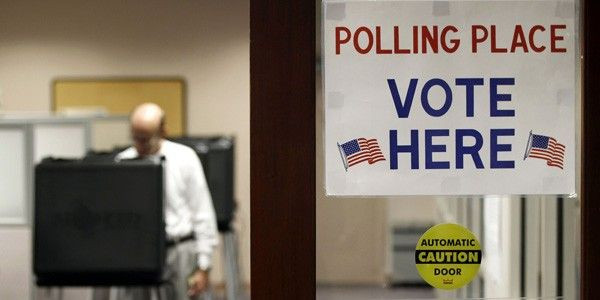Florida Voting Law, Immigrant Voter Purge Halted

Florida has developed a reputation for a messy and contentious election process, and this year is shaping up to be no different.
In a double blow to Florida's controversial push to prevent election fraud, a federal judge blocked the state's new voting law and the Justice Department ordered the state to halt a purge of noncitizens from its voter rolls.
The voting law imposed tough new restrictions on voter registration, generating a backlash from Democrats and groups that said the new regulations were unnecessarily harsh. Groups that don't deliver election officials voter registration forms within 48 hours of signing someone up face a steep fine, a requirement that led the League of Women Voters to suspend its registration drives and saw a high school teacher face thousands of dollars in penalties.
U.S. District Judge Robert Hinkle said on Thursday that the law carries burdensome record-keeping and reporting requirements that serve little if any purpose, thus rendering them unconstitutional.
The short deadline, coupled with substantial penalties for non-compliance, make voter registration drives a risky business, Hinkle wrote. If the goal is to discourage voter registration drives and thus make it harder for new voters to register, the 48-hour deadline may succeed.
The ruling is a victory for the Obama administration and for Democrats who have sharply criticized - and in the White House's case, often challenged in court -- a national cascade of new legislation tightening voter requirements. Almost all of the laws have emerged from Republican-controlled statehouses, and critics contend that they are designed to disenfranchise constituencies - such as students, immigrants and low-income voters - that are more likely to vote Democratic.
Attorney General Eric Holder has vowed to scrutinize new restrictions on voting to ensure they pass constitutional muster, and on Thursday night the Department of Justice moved to suspend Florida's attempt to strike ineligible people from its voter registration rolls.
Florida state election officials have initiated a sweeping review of noncitizen voters who are mistakenly registered to vote, issuing county election monitors a preliminary list of some 2,700 names and saying they had a larger list of about 182,000 invalid voters.
But the first, smaller list was already riddled with errors, and many of the allegedly ineligible voters named were in fact citizens who are entitled to vote. County supervisors have expressed skepticism about amplifying the statewide purge given the rate of inaccuracies, and Florida's Democratic congressional delegation earlier this week asked Gov. Rick Scott to suspend the process.
In a letter to state officials, the Department of Justice's top civil rights lawyer ordered the state to discontinue the review until the federal government could examine it. The Voting Rights Act stipulates that certain counties with histories of discrimination at the polls must get federal approval before changing voting rules. Five of those counties are in Florida.
It is necessary that they either be brought before that court or submitted to the Attorney General for a determination that they neither have the purpose nor will have the effect of discriminating on account of race, color, or membership in a language minority group under Section 5 of the Voting Rights Act, T. Christian Herren Jr. wrote.
© Copyright IBTimes 2025. All rights reserved.





















